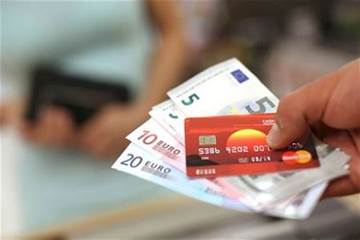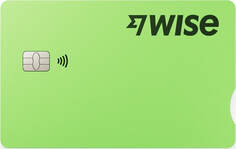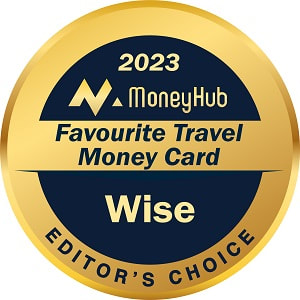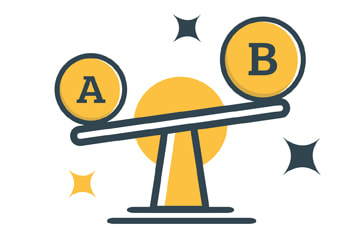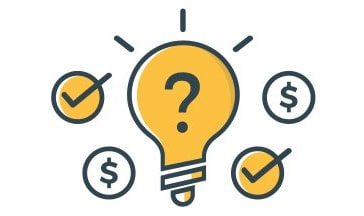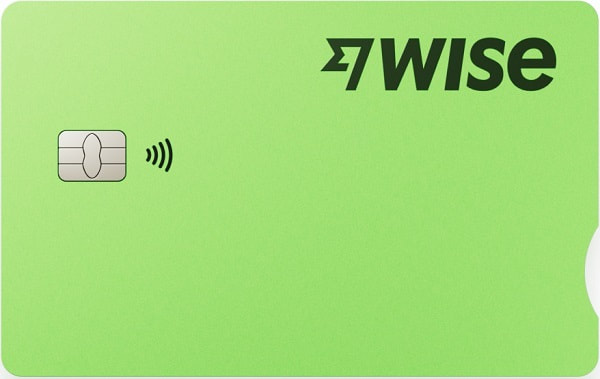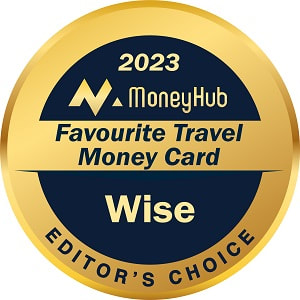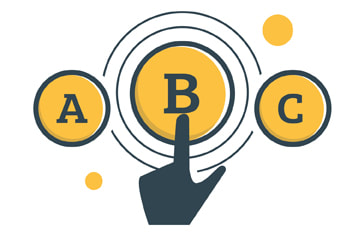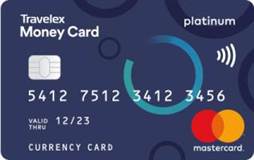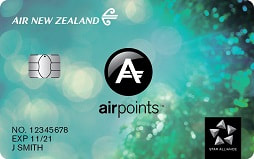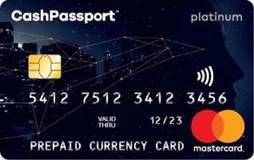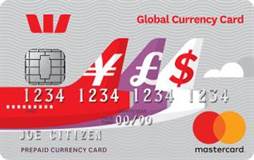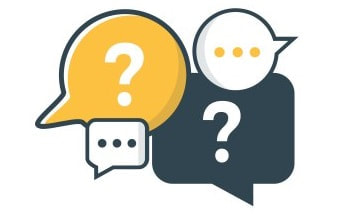Compare Travel Money Cards - The Definitive New Zealand Guide
Going overseas? Avoid your bank's bad exchange rates as well as high FX charges from debit and credit cards by choosing the right travel card. We compare five travel money cards from Wise, Travelex, Air New Zealand, Mastercard and Westpac.
Updated 18 July 2024
Summary
Our Travel Money Card guide covers:
Advertising disclosure: We may receive a payment if you sign up for a card via MoneyHub - please read our advertising policy for more details.
Summary
- If you are about to leave New Zealand and go overseas for a holiday or an OE, using a Travel Money card might be a good option. But which one offers the best deal, and what are the fees?
- Our research analysed the exchange rates offered by Travel Money Card providers for popular currencies (Euro, USD, Australian Dollar and the British Pound) and found a significant difference between Travel Money Cards by way of fees and foreign exchange rates.
- Based on our findings, the Wise Debit Card offers the best FX rates, unrivalled security and ease of use, and has more features and currencies to choose from. In fact, it's our favourite travel card full stop.
- We don't believe there is a "runner up" as none of the other four cards available in New Zealand competes on exchange rates, fees or features. Quite simply, Wise will give you the most foreign currency for every New Zealand Dollar.
- We believe the most attractive option is Wise, with nothing else coming a close second. For this reason, we focus on Wise extensively in this guide, as we have an obligation to make the best option clear to every reader.
- Want to see how much you can save? Our video shows the difference in FX rates and fees between all five cards, and we suggest you make a quick comparison for your intended currency.
- Traditional Travel Money Cards, as a product, have had issues. Travelex was hacked in early 2020, locking people out of their digital wallets. Then, when COVID hit, travel money cards offered by Kiwibank and Qantas were promptly discontinued. Later, Travelex was close to going bankrupt after an accounting and financial scandal.
- We see the travel money card market as being split between 'innovators' (Wise Debit Card) and 'traditional' providers (Travelex, Air New Zealand, Mastercard and Westpac). We believe Wise to be the best product on every front; unlike traditional travel money cards, it offers the best rates for your NZD and doesn't charge a bunch of fees.
Our Travel Money Card guide covers:
- Travel Money Cards vs Bank-Issued Debit and Credit Cards - What's Best?
- Why Use a Travel Money Card?
- Travel Money Card Must-Know Facts
- The Best Travel Money Cards
- Travel Money Card Frequently Asked Questions
Advertising disclosure: We may receive a payment if you sign up for a card via MoneyHub - please read our advertising policy for more details.
Related guide: Travelex Money Card vs Wise Debit Card
MoneyHub Founder Christopher Walsh shares his views on Travel Money Cards, and, specifically, Wise vs traditional cards:
|
"Unfortunately, traditional travel money cards have charged a 'travel tax' on New Zealanders exploring the world for far too long. They promise simplicity, but I am not impressed by all the fees they charge.
New Zealanders holidaying overseas increasingly use a credit card to pay for purchases, but doing so attracts 1% to 3% FX fees on every transaction (per our research). Traditional travel money cards are meant to eliminate these fees, but they don't, and I think they do their best to find other ways to charge. I'm wary of cards with 'load' fees, withdrawal fees, 'unsupported currency' charges, etc. And I don't like most of what I see in terms of functionality. Picking the right card is important for easier travel. I've met New Zealanders overseas who have mild anxiety about their travel money card, which distracts them from enjoying their journey. They typically ask me a similar question: should they lock in an FX rate now, leave it until later, or use their credit card? I don't particularly appreciate seeing people worry about fluctuations in the New Zealand dollar when they're overseas. But traditional travel money cards arguably force you to waste time thinking about this and play their game. It isn't very pleasant, and I'd never use one for this and many other reasons. COVID-19 saw the 'retirement' of two travel money cards (QantasCash and Kiwibank's offering), and I won't miss either of them. Both marketed themselves as being 'flexible', but I found their fees high. The traditional travel money cards that remain are not too different from those that have closed down. If you want a travel money card that is unbeatable, I suggest the Wise Debit Card; I use it and swear by it. It doesn't have any tricky fees - you pay NZ$14 for the card to be issued and posted to you, and then you get the best exchange rates and pay very low fees on each transaction. It also has an app where you can track your spending, which is very helpful. You can transfer NZD from your bank account to the card for free. The balance is yours to spend or withdraw as you please - every transaction will then be deducted in NZD at the best rates and lowest fees. If you want to withdraw money from an ATM, some fees can be charged (as is the case with any travel money card or debit/credit card), but I tend to limit this. Do you want to buy AUD, Euros, USD, Pounds or a specific currency in advance? The Wise debit card also lets you buy foreign currencies and store them in your 'online wallet'. You can then lock in an exchange rate and have a set amount of local currency for your trip. I don't have much time for the rest of the travel money cards available. They seem like old technology and have not innovated (other than how to charge fees). For this reason, the Wise debit card leads the market". |
MoneyHub Founder Christopher Walsh
|
Know This First: What is a Travel Money Card?
- A travel money card is a prepaid card, like a Visa or MasterCard, that you load up with one or more foreign currencies. A travel money card is not a credit card, so you can only spend what you have put on the card, nor can you run up debt. A wide range of currencies can be loaded onto it, such as US dollars, Euros, British Pounds, Japanese Yen and Australian Dollars.
- Travel Money cards act like having digital currency in your wallet. For example, you buy 500 Euros, 500 British Pounds, 500 US Dollars. To spend the balance, you use the card when in the countries that use those currencies, and the amount spent is deducted. If you run out of any currency, you can use Internet banking to top up your balance. Your New Zealand dollars will be converted to the currency using the exchange rate at the time of your transaction.
- What currencies you load on the card depends on where you will travel. For traditional travel money cards, when a travel money card is topped up, the exchange rate is locked in. If the New Zealand dollar falls in value afterwards, the amount on the card is not affected. This means you know how much foreign currency you have at the start of your trip.
- While you are overseas, you can reload a travel money card using Internet banking. These cards carry either the Mastercard or Visa logos and are always accepted by cash machines and retailers with EFTPOS-type machines. This means that if a retailer accepts debit and credit cards, it will accept a travel money card.
Our Top-Rated Travel Money Card - The Wise Debit Card
|
MoneyHub Founder Christopher Walsh explains the positive user reviews and media opinion of the Wise Debit Card in the video below:
Warning: A MoneyHub reader shares his experience (and problems) with the Travelex Money Card in April 2022:
Our reader's report from April 2022:
"We had to make an emergency trip to the Gold Coast. So I decided to try out the Travelex Money card rather than rely on my credit card, as I usually do. Since the time before flying out was limited, the card was purchased at Auckland Airport. The service at the airport was reasonably quick and efficient, as I had all the documentation they needed. The staff at the desk loaded funds, and we were all sorted – or so I thought.
In Australia, the card worked well everywhere we went (apart from car rental, which required a credit card – no dramas there). However, the problems started when we needed to top up the card. We could not top up via the app, at ATMs (all of which wanted to charge $5 each time) or via Internet banking. We either got error messages (at ATMs or on the app) or said the transfer was successful, but the funds never appeared on the card or were deducted from our bank.
Two calls to the help desk, after longish waits, resulted in the staff suggesting we try what we had already done. I don't think they fully understood the problem; both times, we were told our issues would be referred to their technical team, who would call us back. A month later, I am still waiting for the callback!
Checking the balance and transactions at an ATM or through the app was easy, but I wouldn't use the Travelex Money Card again. Next time I will look at the Wise card".
- We continue to receive reports of issues with the Travelex Money Card. These include failed top-ups, additional and unexpected fees.
- It's important to note that in the last 2-3 years, Travelex suffered a hacking scandal (cutting out access to card balances). The parent company also went into administration in the UK, although it is operating under a new structure (for now).
- An article in the Financial Times, "How I was fleeced by Travelex", gives further insights. It concludes with "if companies such as Travelex are persistently aggressive in fleecing their customers, there will be growing pressure for regulatory intervention — if the fintechs don’t get them first".
- We believe Wise (and their innovative Debit Card) is one example of Fintech innovation, and the only cost-effective and convenient travel money card available in New Zealand.
- While Travelex has more brand awareness in New Zealand, it is expensive and has not innovated in the space. In comparison, Wise is a multi-billion dollar company listed on the London Stock Exchange that champions low fees and market FX rates.
Our reader's report from April 2022:
"We had to make an emergency trip to the Gold Coast. So I decided to try out the Travelex Money card rather than rely on my credit card, as I usually do. Since the time before flying out was limited, the card was purchased at Auckland Airport. The service at the airport was reasonably quick and efficient, as I had all the documentation they needed. The staff at the desk loaded funds, and we were all sorted – or so I thought.
In Australia, the card worked well everywhere we went (apart from car rental, which required a credit card – no dramas there). However, the problems started when we needed to top up the card. We could not top up via the app, at ATMs (all of which wanted to charge $5 each time) or via Internet banking. We either got error messages (at ATMs or on the app) or said the transfer was successful, but the funds never appeared on the card or were deducted from our bank.
Two calls to the help desk, after longish waits, resulted in the staff suggesting we try what we had already done. I don't think they fully understood the problem; both times, we were told our issues would be referred to their technical team, who would call us back. A month later, I am still waiting for the callback!
Checking the balance and transactions at an ATM or through the app was easy, but I wouldn't use the Travelex Money Card again. Next time I will look at the Wise card".
Travel Money Cards vs Bank-Issued Debit and Credit Cards - What's Best?
- We have extensively researched and compared this, as outlined in our foreign currency debit and credit card fees review.
- Bank-issued debit and credit cards charge a fee on the transaction value. For debit cards, this is around 2% to 2.60%, whereas credit cards are around 1.30% to 2.00%. This is much higher than Wise, which averages around 0.50% on dozens of popular currencies.
- Travel Money Cards (excluding Wise) have a margin built into the exchange rates when you top them up from NZD. We estimate this to be around 2% to 3%, which makes them as expensive or more expensive than using a debit or credit card.
Why use a Travel Money Card?
Travel Money cards have many benefits over cash, debit cards and credit cards, as we outline below:
- Travel money cards are safer than cash; they are prepaid and have a PIN - you can carry one around without the need of to have large amounts of cash in your handbag or wallet.
- A Travel Money card has the advantage of being protected if your wallet is lost or stolen - cardholders simply call the provider to block the card and ask for a replacement to be mailed out or collected when they get home.
- Travel Money cards also help you budget - you can't get into debt like a credit card because the balance is prepaid. Having a debit card and a credit card as a backup is never a bad idea in case your Travel Money card doesn't work for any reason.
- Travel Money cards let you fix the exchange rate when you load them - you know, for example, that 1,000 New Zealand dollars bought you 900 Australian dollars. This is different from debit and credit cards, which use the exchange rate at the moment the transaction is processed to convert your spending back into New Zealand dollars.
- If you see that the New Zealand dollar is falling before you go overseas, you can buy foreign currency to protect yourself from your money being worth less when you are overseas.
Our Top-Rated Travel Money Card - The Wise Debit CardWe like the Wise Debit Card because it lets you:
Our view:
|
A Popular Alternative to Wise - Revolut
|
Similar to Wise, Revolut offers versatile features and leading travel money card value. Our comparison of
Wise vs Revolut explains more. However, Revolut applies a 1% surcharge on currency transactions during weekends, meaning we're unable to compare it fairly in our tables. For more details about Revolut and why it's becoming popular with New Zealanders, explore our in-depth review and visit Revolut's website. |
Travel Money Cards: Must-Know Facts
Check if a credit card or debit card is better for your needsBefore considering getting a travel money card, check out your credit or debit card transaction fees here. The benefits are numerous:
|
Each Travel Money Card company uses its own exchange rates - what you pay will vary between cardsAnd the range varies. This means you'll pay more for spending the same amount of money - the best card is the one with the lowest fees and strongest Foreign Exchange rates. Our research below compares the cards in detail.
|
Traditional travel money cards lock in a foreign exchange rate when you load it with a currency, meaning your foreign currency is fixedIf you load NZD, you will pay the foreign currency rate at the time of the transaction. In addition, you will also pay a commission on the value - anything from 2.50% to as high as 5.95%. Wise avoids all of these fees and penalties by offering low commission and market rates for any foreign exchange purchase.
Otherwise, if you do choose a traditional travel money card, it's more economical to preload it with the currency of the country you are travelling to. This not only locks in the exchange rate giving you security about how much money you have, but it also prevents you from being charged sky-high conversion fees later on if you leave money in NZD. |
Have a backup to avoid being strandedRelying on a traditional travel money card as the only way of spending while overseas is risky. Lose it, and you're in trouble, but even simple transactions can cause issues - if your travel money card has a suspicious transaction, you can be instantly cut off. We believe it's best to have a debit card and a suitable amount of money sitting in your bank account available for emergencies.
MoneyHub reader Mark explains it best. He had a problem when Mastercard, the provider of the Qantas Cash travel money card, flagged one transaction as 'suspicious'. His comments:
|
Travel Money Cards will cause problems if you're renting a car, using pay-at-pump petrol terminals or making certain online bookingsCar rental companies will need a credit card to secure a booking and as a guarantee for any damage - a travel money card is not a credit card and may not be accepted outright. If it is accepted, the 'deposit' for the car rental will mean there is a hold on your balance - often as high as $3,000. This means you won't be able to use that amount for travel expenses until you return your car, and only if it's returned without any damage.
Other transactions, such as “pay at pump” terminals, hotel, motel or cruise reservations can also place a hold on your funds and reduce your available balance for up to 30 days until the merchant has obtained authorisation or approval for the final transaction amount. During this time, your available balance will be reduced by the amount of the held transaction until the transaction clears. These types of transactions are not ideal for using a Travel Money card. |
If your Travel Money Card is lost or stolen, you need to report it right awayThis is clear in the terms and conditions, and all of the providers offer a 24/7 worldwide helpline. Arranging a replacement will be as simple or as complicated as your travel plans, but the provider will work with your itinerary to get a new card to you.
|
If you're going to a country that uses a currency not offered by a Travel Money card, don't get oneThis is because the foreign currency exchange fees for non-loaded currencies is between 2.95% and 5.95%. This is well above what Wise charges and also higher than the standard conversion fee range of 1.85%-2.50% offered by New Zealand credit and debit cards.
|
Avoid spending your travel money card balance WITHIN New ZealandIf you make the mistake of using an NZD balance within New Zealand, most cards will charge you for doing this. Be prepared to get smashed by fees as high as 5.95% on the value of the transaction. Wise, of course, is the exception and lets you spend NZD without any fees or penalties.
|
AVOID 'dynamic currency conversion' options or face paying TWO currency conversion feesHere is a real example:
Quite simply, NEVER accept dynamic currency conversion - it's always bad value. Even if you don't have any funds loaded onto your travel money card in the currency of the country you are in, you should NOT opt into dynamic currency conversion. |
Travelex Travel Money cards can be topped up at kiosks, but the rates may differ from those online, and fees DO applyTravelex offers cardholders the option to load/reload at kiosks and partners, but to do so comes at the cost of 1.0% of the total amount added (minimum NZ$10), and the currency rates offered may not be as competitive as those from travelex.co.nz. This is another way traditional travel money cards, and in this case Travelex, make their money. For this reason, topping up online is not only easier but also cheaper.
|
Our Top-Rated Travel Money Card - The Wise Debit Card
|
The Best Travel Money Cards Available Right Now
The travel money cards listed below function just like debit and credit cards; you can use them anywhere Visa and Mastercard are accepted.
Finding the best card for your needs:
Important: How do Travel Money Cards compare to the amount you receive at ATMs and to purchases using "normal" bank-issued debit cards?
Finding the best card for your needs:
- Our video below explains the difference in FX rates with a real example.
- You can compare the exchange rates yourself with the providers for any currency you want to buy:
- Wise (best value overall)
- Cash Passport
- Travelex
- Westpac Currency Card
- Air New Zealand OneSmart (arguably one of the worst-value cards, even if you take into account the free Airpoints Dollars offering)
Important: How do Travel Money Cards compare to the amount you receive at ATMs and to purchases using "normal" bank-issued debit cards?
- We have extensively researched and compared this, as outlined in our foreign currency debit and credit card fees review.
- Bank-issued debit and credit cards charge a fee on the transaction value. For debit cards this is around 2% to 2.60%, whereas credit cards are around 1.30% to 2.00%. This is much higher than Wise, which averages around 0.50% on dozens of popular currencies.
- Travel Money Cards (excluding Wise) have a margin built into the exchange rates when you top them up from NZD. We estimate this to be around 2% to 3%, which makes them as expensive, if not more expensive, than using a debit or credit card.
Our Top-Rated Travel Money Card - The Wise Debit CardWe like the Wise Debit Card because it lets you:
Our view:
Wise Travel Money Card vs Wise Debit Card - What's the Difference?
|
Other Travel Money Cards Available in New Zealand
We don't have much time for the rest of the travel money cards available and can't offer a "runner-up" to the Wise Debit Card, which is unusual in most comparisons on MoneyHub. In this case, the other options don't offer anything as innovative and cost-effective as Wise does. We list them in no particular order:
Travelex Money Card
|
Features:
Watch out for:
|
OneSmart (Air New Zealand)
|
Features:
Watch out for:
|
CashPassport (Mastercard)
|
Features:
Watch out for:
|
Global Currency Card (Westpac)
|
Features:
Watch out for:
|
A Popular Alternative to Wise - Revolut
|
Similar to Wise, Revolut offers versatile features and leading travel money card value. Our comparison of
Wise vs Revolut explains more. However, Revolut applies a 1% surcharge on currency transactions during weekends, meaning we're unable to compare it fairly in our tables. For more details about Revolut and why it's becoming popular with New Zealanders, explore our in-depth review and visit Revolut's website. |
Travelex vs Wise - What You Need to Know:
- We compare Travelex vs Wise in the video below, and our dedicated guide explains more.
- Our research found that the exchange rate with Travelex is up to 5% lower for some currencies.
- We encourage you to make your comparison in seconds on the Travelex and Wise websites.
Travel Money Card Frequently Asked Questions
For the most part, the questions below relate to traditional travel money cards. The Wise Debit Card avoids the fees and complications associated with such cards.
We have a dedicated video which answers questions about the Wise Debit Card - you can view that here.
We have a dedicated video which answers questions about the Wise Debit Card - you can view that here.
What do I do with leftover money?
Unsurprisingly, many providers don't have tips on this. Our view is that if you've returned to New Zealand and have an outstanding balance, 'deloading' is probably a top priority. This is done by transferring the balance back to your bank account, appearing around 3 to 5 days later.
Know this: Using the card balance in New Zealand in an EFTPOS terminal or online will likely incur a 2.50% to 5.95% fee based on the value of the transaction.
Wise Debit Card: You can convert unused foreign currency balances back to NZD at market rates. If you've always used an NZD balance to pay for overseas purchases, then you can either transfer the NZD balance back to your everyday bank account or keep using the Wise balance on everyday purchases.
Know this: Using the card balance in New Zealand in an EFTPOS terminal or online will likely incur a 2.50% to 5.95% fee based on the value of the transaction.
Wise Debit Card: You can convert unused foreign currency balances back to NZD at market rates. If you've always used an NZD balance to pay for overseas purchases, then you can either transfer the NZD balance back to your everyday bank account or keep using the Wise balance on everyday purchases.
Can I withdraw cash abroad?
Yes - all travel money cards allow this. The fees per card vary, from free to up to $6. See our summary of each card above for more details.
What currencies can a travel money card hold?
Depending on your card, it will be around 8-11 (or 50+ for Wise). These commonly include NZD (New Zealand Dollar), AUD (Australian Dollar), EUR (Euro), USD (US Dollar), GBP (British Pound), HKD (Hong Kong Dollar), CAD (Canadian Dollar), JPY (Japanese Yen), SGD (Singaporean Dollar), THB (Thai Bhat), UAE (Emirate Dihram) and ZAR (South African Rand).
Wise Debit Card: You can load 50+ currencies, including AUD, BGN, BRL, CAD, CHF, CZK, DKK, EUR, GBP, HRK, HUF, JPY, MYR, NOK, NZD, PLN, RON, SEK, SGD, TRY and USD.
Wise Debit Card: You can load 50+ currencies, including AUD, BGN, BRL, CAD, CHF, CZK, DKK, EUR, GBP, HRK, HUF, JPY, MYR, NOK, NZD, PLN, RON, SEK, SGD, TRY and USD.
How long does it take to get a travel money card?
This varies. ANZ and Westpac can give you one right away at any branch, Travelex cards can be purchased at an affiliated kiosk. Mastercard and Air New Zealand cards can be arranged online with a 2-3 working day delivery time, but Air New Zealand advises it can take up to four weeks.
Wise Debit Card: You will usually receive the card in 2-3 working days after ordering it.
Wise Debit Card: You will usually receive the card in 2-3 working days after ordering it.
Can I use my travel money card in any country?
Yes, with the exceptions of embargoed countries - Iran, Syria, Cuba, North Korea, the Sudan and the Crimea. If you use the card in a country where you don't have a balance loaded, you will pay a foreign exchange fee of between 2.50% and 5.95% commission on the transaction depending on your provider (see Currency Conversion Fees in our summary table LINK).
Who sets the exchange rate?
The exchange rate to load the card is set by the provider of the card, for example Air New Zealand or Travelex. Each provider has their own exchange rates (see our comparison table). When you make a purchase, as long as you have sufficient balance in transaction's currency, there are no added foreign exchange fees. If you need to use other currency balances, the foreign exchange rate is set by either Mastercard or Visa, depending on your card.
Wise Debit Card: The above also applies for the Wise Debit Card.
Related guides:
Wise Debit Card: The above also applies for the Wise Debit Card.
Related guides:
Does money expire if I don't use it?
No, but two of the cards mentioned above apply monthly fees which will eat into unused balances. The Travelex Money Card charges $4 a month if your card is inactive for 12 months, and the Air New Zealand OneSmart card charges $1.00 per month as an account fee.
Wise Debit Card: No money ever expires when loaded into a Wise account/debit card.
Wise Debit Card: No money ever expires when loaded into a Wise account/debit card.
What is the best travel money card?
We believe the Wise Debit Card is the best travel money card. We see the other traditional cards as expensive, lacking innovation and inconvenient.
Can you change from one foreign currency to another by transferring the balance, i.e. if you leave the USA, can you transfer left over USD to EUR or GBP, for example?
Generally, no. You can convert the balance(s) back to NZD, and purchase another currency to minimize any fees.
Wise Debit Card: You can do such a transaction in a few clicks to move money from one currency to another. Or, you can make purchases in one currency (for example, GBP) and pay for it with, for example, Euros of NZD, if you don't have any GBP. This video below explains how it works:
Wise Debit Card: You can do such a transaction in a few clicks to move money from one currency to another. Or, you can make purchases in one currency (for example, GBP) and pay for it with, for example, Euros of NZD, if you don't have any GBP. This video below explains how it works:
If I transfer leftover foreign currency back to my New Zealand bank account, do I get the rate I paid for it originally, or the market rate at the date of the transfer?
Unless your card specifies otherwise, you will get the rate at the time you transfer the money back into NZD.
Our Top-Rated Travel Money Card - The Wise Debit CardWe like the Wise Debit Card because it lets you:
Our view:
Wise Travel Money Card vs Wise Debit Card - What's the Difference?They are the same thing. You can use your Wise card at shops, ATMs, online as it's a debit card. We refer to it as a travel money card, given you can fund it with New Zealand Dollars (or any other currency) and store multiple currencies in wallets. |
A Popular Alternative to Wise - Revolut
|
Similar to Wise, Revolut offers versatile features and leading travel money card value. Our comparison of
Wise vs Revolut explains more. However, Revolut applies a 1% surcharge on currency transactions during weekends, meaning we're unable to compare it fairly in our tables. For more details about Revolut and why it's becoming popular with New Zealanders, explore our in-depth review and visit Revolut's website. |
Related guides
Travel Money by Country:
- Travelex Money Card vs Wise Debit Card
- Wise Debit Card vs Cash Passport Travel Money Card
- Wise Debit Card vs Air New Zealand OneSmart Travel Money Card
- Wise Debit Card Review
- The Best Travel Money Options for New Zealanders Travelling to Fiji
- Foreign Currency Debit and Credit Card Fees
- Foreign Currency Exchange
Travel Money by Country:

